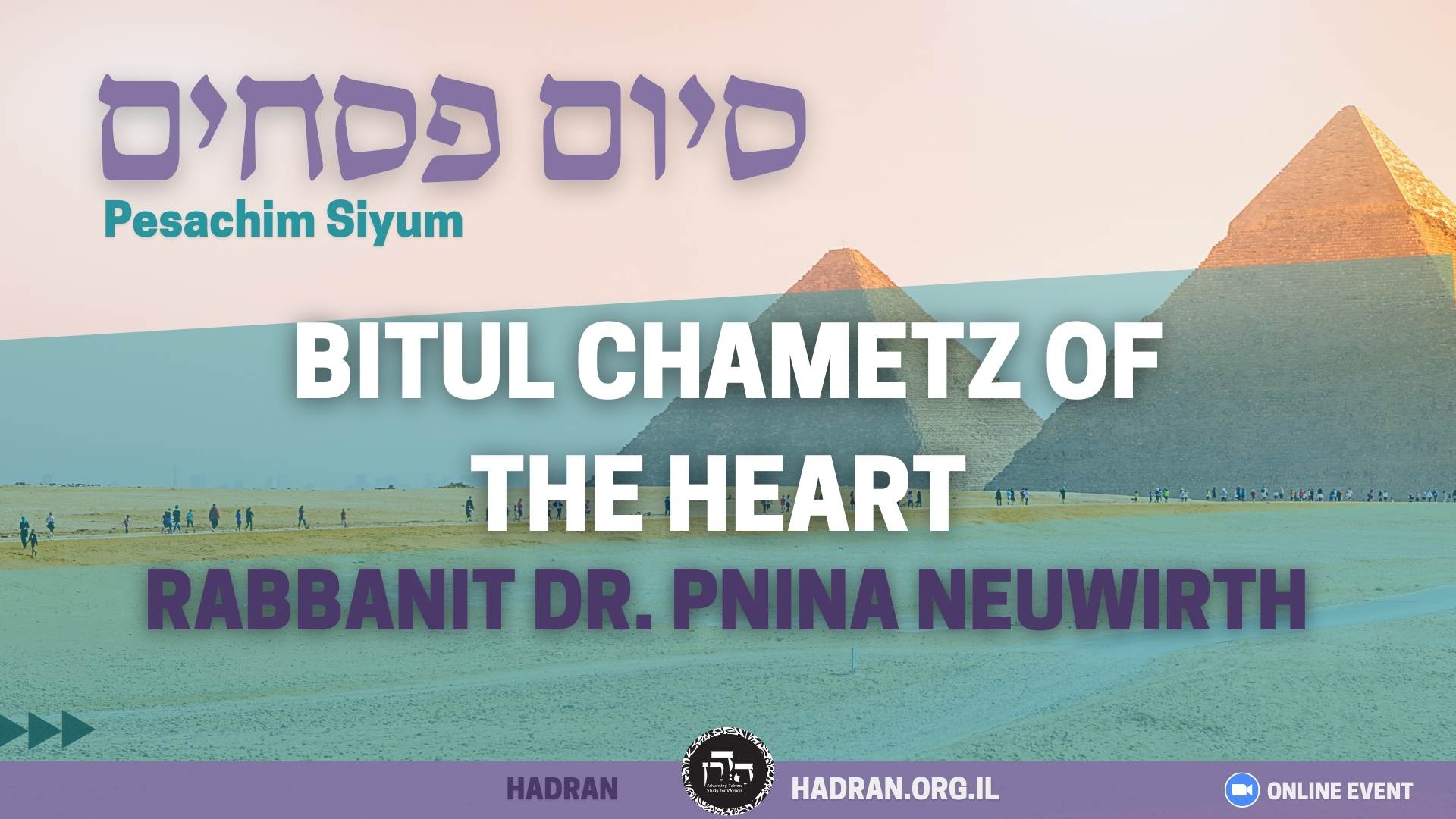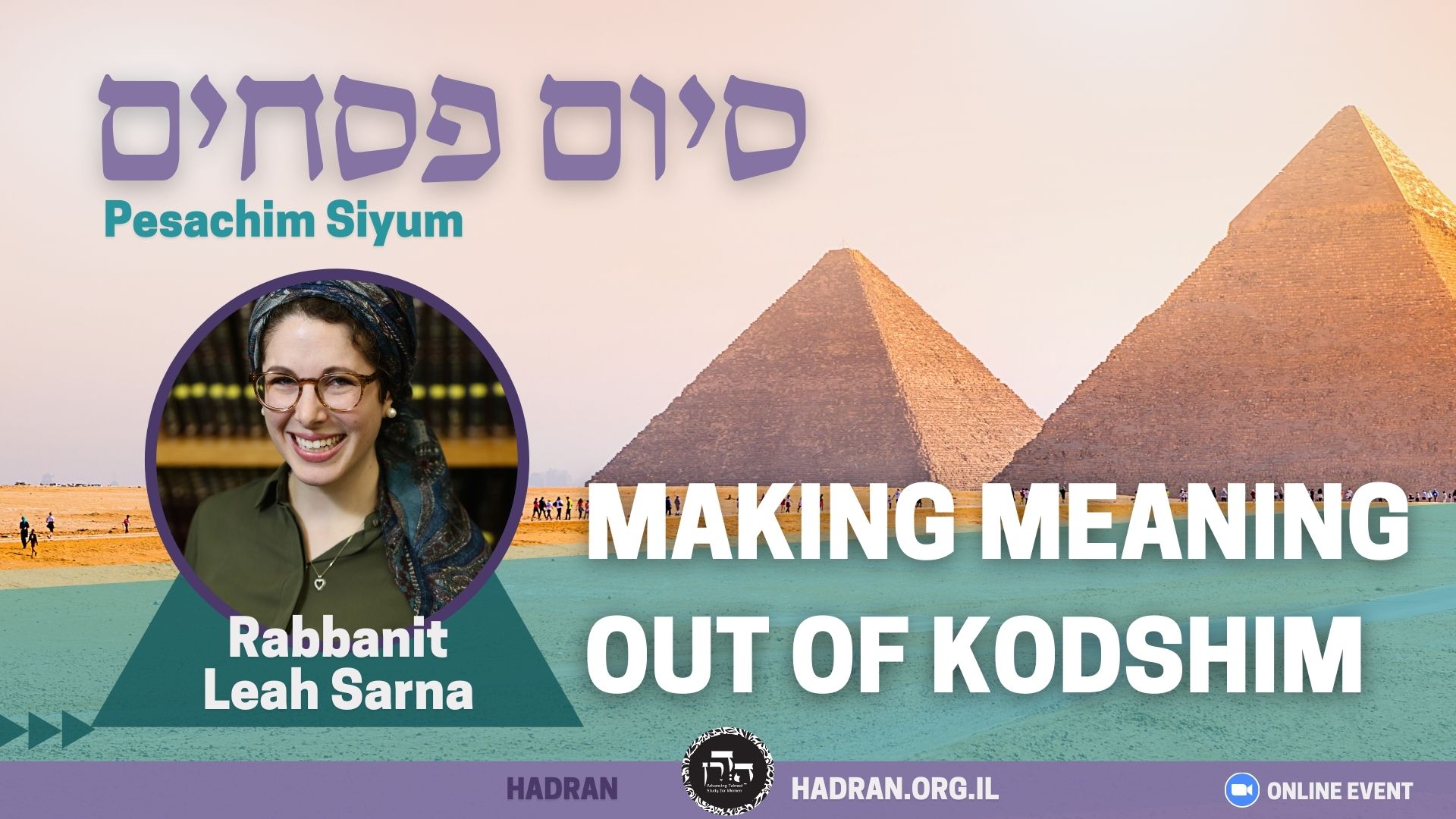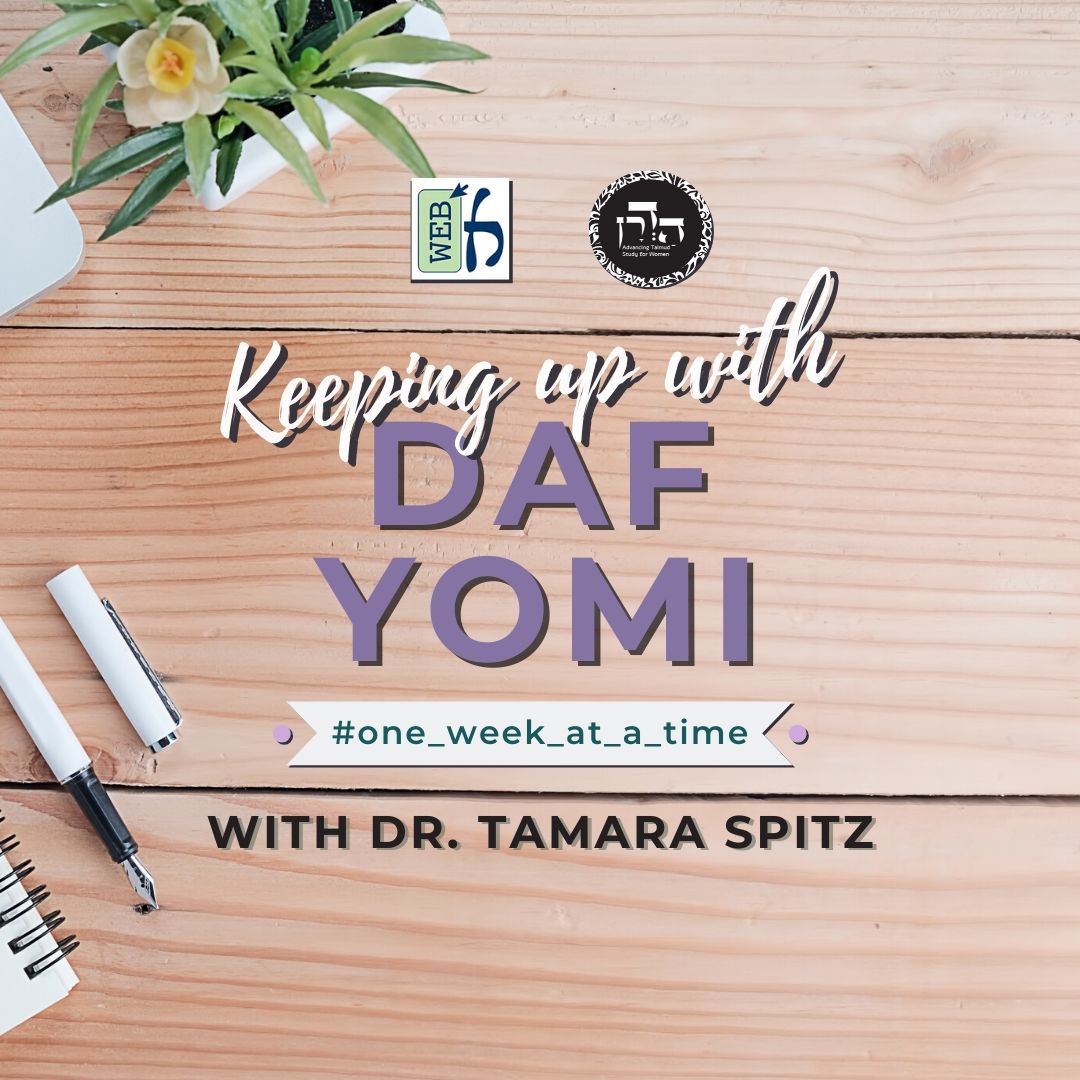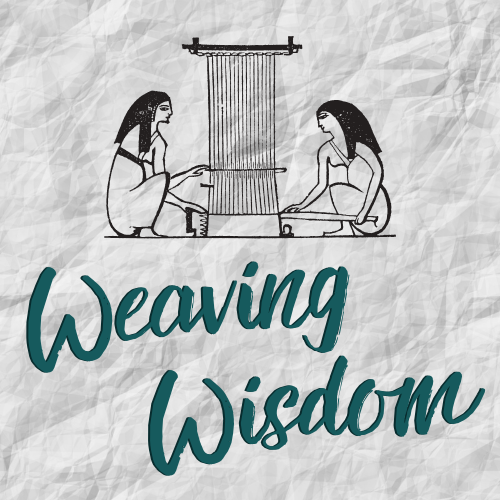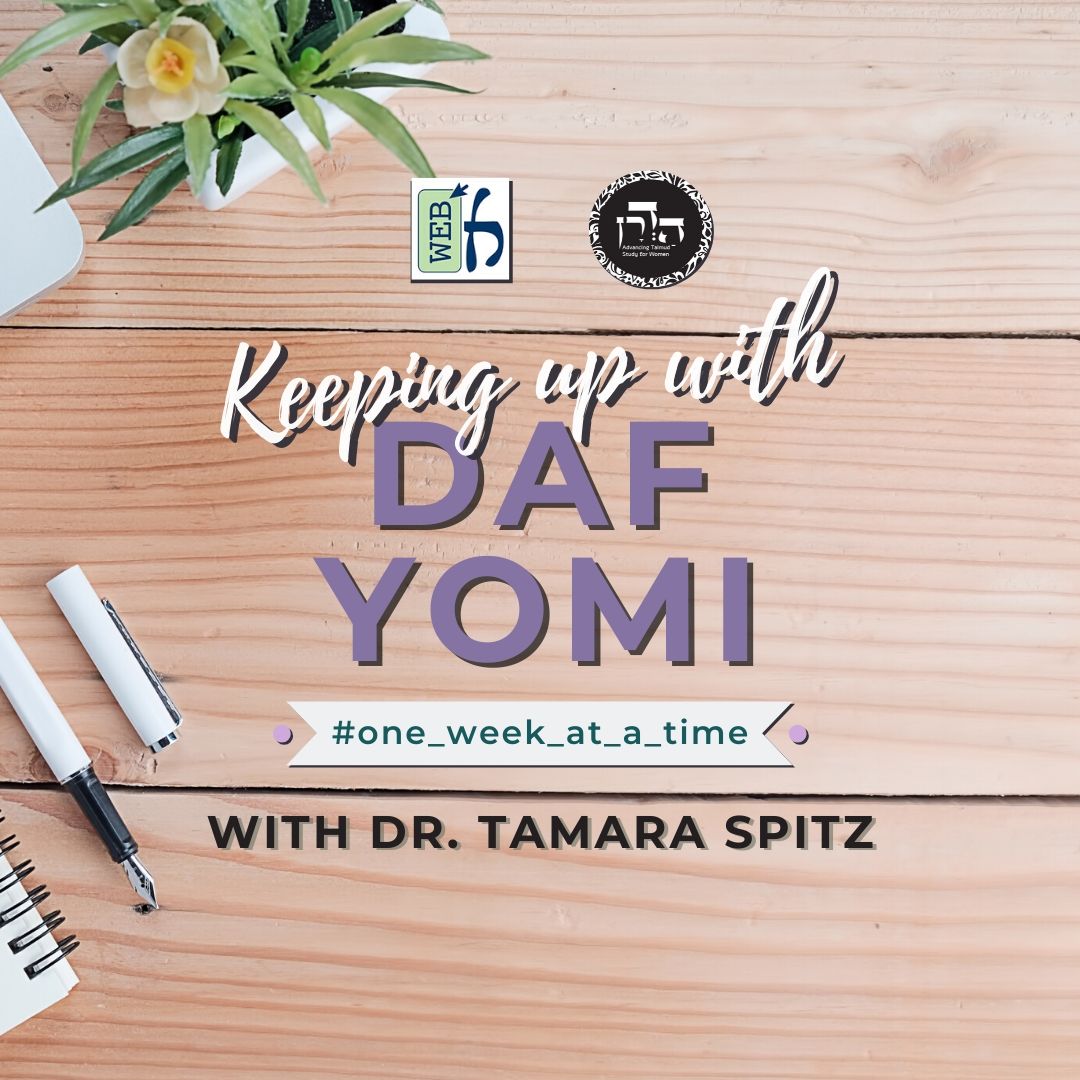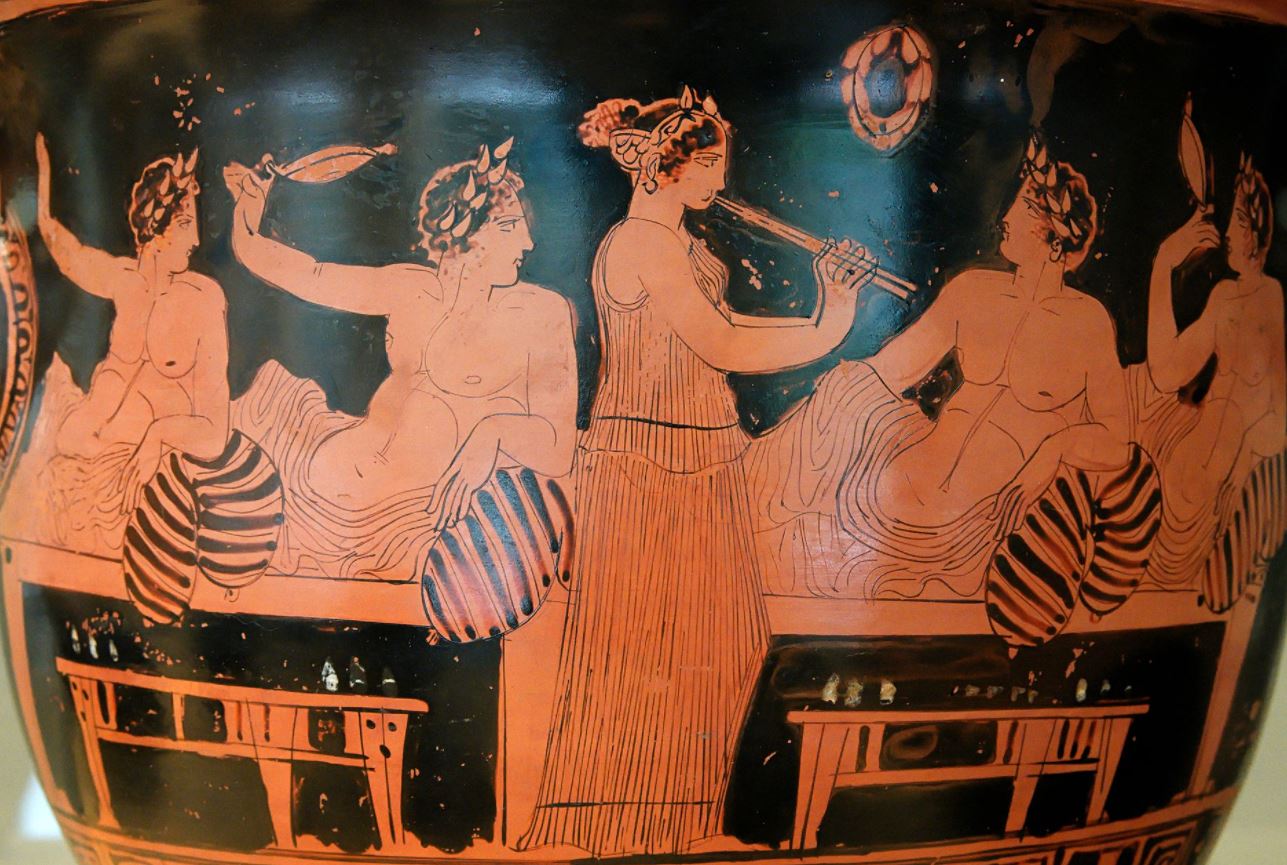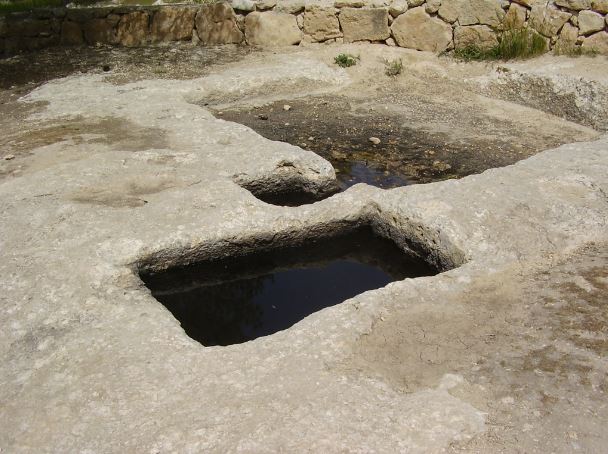Pesachim 90
אָמַר אַבָּיֵי: אִי לָאו דְּאוֹקְמֵיהּ רַבִּי אוֹשַׁעְיָא לְהַהִיא בִּמְמַנֶּה זוֹנָה עַל פִּסְחוֹ וְרַבִּי הִיא, הֲוָה מוֹקֵמְינָא לָהּ לְהַהִיא בְּקָדָשִׁים קַלִּים וְאַלִּיבָּא דְּרַבִּי יוֹסֵי הַגְּלִילִי, דְּאָמַר: קָדָשִׁים קַלִּים מָמוֹן בְּעָלִים הוּא,
A mishna and baraita that the Gemara cites later on in the discussion teach that, logically, were it not for a verse teaching otherwise, the prohibition against using as an offering an animal given as payment for a prostitute’s services should apply even in a case where the animal had already been consecrated as an offering before being given as payment. Abaye said: If not that Rabbi Oshaya established that that mishna is referring to a case of one who registers a prostitute for his Paschal lamb as her payment, and this position is in accordance with the opinion of Rabbi Yehuda HaNasi, whom Rabbi Oshaya apparently understood and who holds that a person retains monetary rights to his Paschal lamb even after consecration, which is why one is able to register the prostitute for it, I would have established that mishna as referring only to offerings of lesser sanctity and claimed it is in accordance with the opinion of Rabbi Yosei HaGelili, who said: Offerings of lesser sanctity are the monetary property of their owners, and therefore it is possible for the owner to use them as payment for a prostitute.
אֲבָל בְּפֶסַח לָא מְשַׁיַּיר אִינִישׁ, בְּמָעוֹת וַדַּאי מְשַׁיַּיר אִינִישׁ, דְּמֵעִיקָּרָא כִּי מַפְרֵישׁ לְהוּ — אַדַּעְתָּא דְּהָכִי מַפְרֵישׁ לְהוּ.
But I would have presumed that Rabbi Yehuda HaNasi holds that a Paschal lamb is unlike regular offerings of lesser sanctity, in that a person does not restrict its consecration in order to retain monetary rights to it, and it is therefore not considered to be his property at all. However, with regard to money consecrated for a Paschal lamb, a person certainly restricts its consecration. When one initially designates it, he designated it with this intent: If he should wish to purchase a portion in someone else’s Paschal lamb that was already consecrated, then the money should remain non-sacred in order to allow for that purchase to take hold.
וְהָא רַבִּי הִיא, וּמִשּׁוּם הָכִי מָעוֹת שֶׁבְּיָדוֹ חוּלִּין, דְּבַפֶּסַח לָא מְשַׁיַּיר אִינִישׁ, וּבְמָעוֹת וַדַּאי מְשַׁיַּיר אִינִישׁ.
I would have therefore been able to explain that this baraita is in accordance with the opinion of Rabbi Yehuda HaNasi. Due to this opinion of his, the money in the hand of the owner of the lamb, which he received for selling a share in his Paschal lamb, is non-sacred because, although with regard to the Paschal lamb a person does not restrict its consecration, with regard to money a person certainly restricts its consecration.
וְהָהִיא דְּקָא מוֹקֵי לַהּ רַבִּי אוֹשַׁעְיָא כְּרַבִּי — לָא מוֹקֵמְינָא לֵיהּ אֲנָא כְּרַבִּי, דִּבְפֶסַח לָא מְשַׁיַּיר אִינִישׁ — וּבְמָעוֹת מְשַׁיַּיר אִינִישׁ. דְּמֵעִיקָּרָא כִּי מַפְרֵישׁ לְהוּ — אַדַּעְתָּא דְּהָכִי מַפְרֵישׁ לְהוּ.
Abaye continues his line of thinking: And that mishna that Rabbi Oshaya established as being in accordance with the opinion of Rabbi Yehuda HaNasi, I would not establish it as being in accordance with the opinion of Rabbi Yehuda HaNasi. According to him, when designating a Paschal lamb, a person does not limit its consecration from fully taking effect, and therefore he retains monetary rights to the lamb; whereas with regard to money, a person does limit its consecration, for when one originally designates it, he designates it with this intent.
וְהָא לֵיכָּא לְאוֹקֹמֵי כְּרַבִּי יוֹסֵי, דְּהָא תָּנֵי בַּהּ: וְהַמּוֹכֵר עוֹלָתוֹ וּשְׁלָמָיו — לֹא עָשָׂה וְלֹא כְלוּם.
Abaye admits that there is a problem with explaining the baraita in this way: However, this, the baraita we are addressing, cannot be established in accordance with the opinion of Rabbi Yosei, for it also teaches in a different clause that one who sells his burnt-offering and peace-offerings has not done anything. Meanwhile, Rabbi Yosei maintains that a peace-offering is one’s personal property, and therefore if one sells it the sale is valid.
וְהַשְׁתָּא דְּאוֹקְמֵיהּ רַבִּי אוֹשַׁעְיָא לְהָהִיא בִּמְמַנֶּה זוֹנָה עַל פִּסְחוֹ, וְרַבִּי הִיא, שְׁמַע מִינַּהּ דִּסְבִירָא לֵיהּ אֲפִילּוּ בְּפִסְחוֹ מְשַׁיַּיר אִינִישׁ.
Nevertheless, now that Rabbi Oshaya has established that mishna as referring to one who registers a prostitute for his Paschal lamb, and he established that it is in accordance with the opinion of Rabbi Yehuda HaNasi, learn from it that Rabbi Yehuda HaNasi holds that even with regard to one’s Paschal lamb, a person restricts its consecration. Should someone wish to purchase a portion of it, he will be able to do so. In such a case, from the outset that portion was not considered consecrated. This will answer the question raised by Ulla as to how the sanctity of the money can be transferred to a Paschal lamb that was already consecrated. In such a case, according to Rabbi Yehuda HaNasi, one does not fully consecrate the animal from the outset. Therefore, the animal is considered non-sacred for this purpose, and the sanctity may be transferred from the money to the animal.
מַאי הִיא דְּרַבִּי אוֹשַׁעְיָא, דִּתְנַן: נָתַן לָהּ מוּקְדָּשִׁין בְּאֶתְנַנָּהּ — הֲרֵי אֵלּוּ מוּתָּרִין.
What is this teaching of Rabbi Oshaya that Abaye alluded to? Rabbi Oshaya’s teaching concerns the following mishna in Temura: As we learned in a mishna: If one gave animals consecrated as offerings for a prostitute’s payment, they are nevertheless permitted to be sacrificed. Although generally, animals given to a prostitute as payment are disqualified for use as offerings, this disqualification does not apply to an animal that was consecrated beforehand.
עוֹפוֹת דְּחוּלִּין — הֲרֵי אֵלּוּ אֲסוּרִין. שֶׁהָיָה בַּדִּין: וּמָה אִם מוּקְדָּשִׁים שֶׁהַמּוּם פּוֹסֵל בָּהֶן — אֵין אֶתְנַן וּמְחִיר חָל עֲלֵיהֶן, עוֹפוֹת שֶׁאֵין הַמּוּם פּוֹסֵל בָּהֶן — אֵינוֹ דִּין שֶׁאֵין אֶתְנַן וּמְחִיר חָל עֲלֵיהֶן? תַּלְמוּד לוֹמַר: ״לְכׇל נֶדֶר״ — לְרַבּוֹת אֶת הָעוֹפוֹת.
However, if one gave her birds that were non-sacred, they are prohibited for use as an offering. The ruling concerning birds needs to be stated as, by right, it should have been permitted based on the following a fortiori inference: What? If consecrated animals, for which a blemish disqualifies them for use, may nevertheless be used as an offering, since the status of a prostitute’s payment or the status of a dog’s price does not take effect upon them, then with regard to birds, for which a blemish does not disqualify them for use as an offering, is it not logically right that the status of a prostitute’s payment or a dog’s price should not take effect upon them? In repudiation of this argument, the verse states: “You shall not bring the payment of a prostitute, or the price of a dog, into the House of the Lord your God for any vow” (Deuteronomy 23:19). A derivation is made from the extraneous phrase “for any vow” to include birds, which may be brought as vows.
קַל וָחוֹמֶר לַמּוּקְדָּשִׁין מֵעַתָּה: מָה עוֹפוֹת שֶׁאֵין הַמּוּם פּוֹסֵל בָּהֶן — אֶתְנַן וּמְחִיר חָל עֲלֵיהֶן, מוּקְדָּשִׁין שֶׁהַמּוּם פּוֹסֵל בָּהֶן — אֵינוֹ דִּין שֶׁאֶתְנַן וּמְחִיר חָל עֲלֵיהֶן? תַּלְמוּד לוֹמַר: ״לְכׇל נֶדֶר״ — פְּרָט לִנְדּוֹר.
The Gemara cites a baraita that expands the argument made in the mishna and suggests that the opposite argument can also be made: From now, since it is known that birds used as a prostitute’s payment are disqualified, the following a fortiori inference can be made to disqualify an animal already consecrated: Just as with regard to birds, for which a blemish does not disqualify them, the status of a prostitute’s payment and a dog’s price takes effect upon them, so too, with regard to animals consecrated as offerings, for which a blemish does disqualify them, is it not logically right that the status of a prostitute’s payment and a dog’s price should take effect upon them? In repudiation of this argument, the verse states: “For any vow,” indicating that the disqualification applies to everything except for something that has already been vowed to be offered and consecrated for that purpose.
אֶלָּא טַעְמָא דִּכְתַב רַחֲמָנָא ״נֶדֶר״, הָא לָאו הָכִי, הֲוָה אָמֵינָא מוּקְדָּשִׁים חָל אִיסּוּר אֶתְנַן עֲלֵיהֶן, וְהָא אֵין אָדָם אוֹסֵר דָּבָר שֶׁאֵינוֹ שֶׁלּוֹ!
The Gemara analyzes the assumption of this baraita: But the only reason consecrated animals are disqualified is that the Torah writes the word vow; but if not for that I would have said that even with regard to consecrated animals, the prohibition of a prostitute’s payment takes effect upon them. The Gemara questions this assumption: But there is the following established principle: A person cannot make forbidden something that is not his. A consecrated animal is considered to be the property of the Temple and no longer of the individual who consecrated it. If so, how can one make it forbidden by giving it to a prostitute?
אָמַר רַבִּי אוֹשַׁעְיָא: בִּמְמַנֶּה זוֹנָה עַל פִּסְחוֹ, וְרַבִּי הִיא.
Rabbi Oshaya said: The mishna and baraita are referring to one who registers a prostitute for his Paschal lamb, giving her a portion in it as payment for her services, and the mishna and baraita are in accordance with the opinion of Rabbi Yehuda HaNasi, who holds that a Paschal lamb is considered a person’s personal property for the purposes of allowing additional people to register for it.
מַאי רַבִּי? דְּתַנְיָא: ״אִם יִמְעַט הַבַּיִת מִהְיוֹת מִשֶּׂה״, הַחֲיֵיהוּ מִשֶּׂה. מִכְּדֵי אֲכִילָה, וְלֹא מִכְּדֵי מִקָּח.
What is this teaching of Rabbi Yehuda HaNasi that Abaye alluded to? As it was taught in a baraita: The verse states: “And if the household be too little for a lamb, then shall he and his neighbor next to his house take one” (Exodus 12:4). The phrase “if the household be too little” is taken to mean the household cannot afford the basic necessities of the Festival. Continuing this interpretation, the phrase “for a lamb [miheyot miseh]” is then taken to mean: sustain him [haḥayeihu] from the lamb, i.e., he may use the Paschal lamb as a means of supporting himself. He takes money from his neighbor in return for registering his neighbor for a portion of his Paschal lamb and then uses that money to purchase his needs. However, this applies only if one lacks sufficient means to purchase food to eat, but not if he lacks only sufficient means to purchase other items.
רַבִּי אוֹמֵר: אַף מִכְּדֵי מִקָּח, שֶׁאִם אֵין לוֹ — מְמַנֶּה אַחֵר עִמּוֹ עַל פִּסְחוֹ וְעַל חֲגִיגָתוֹ, וּמָעוֹת שֶׁבְּיָדוֹ חוּלִּין, שֶׁעַל מְנָת כֵּן הִקְדִּישׁוּ יִשְׂרָאֵל אֶת פִּסְחֵיהֶן.
Rabbi Yehuda HaNasi says: It applies even if one lacks sufficient means to purchase other necessary items, for if he does not have sufficient funds he may register another person with him for his Paschal lamb and for his Festival peace-offering. And the money in his hand that he receives for registering that person is non-sacred, for it is on this condition that the Jewish people consecrate their Paschal lambs.
רַבָּה וְרַבִּי זֵירָא, חַד אָמַר: בְּעֵצִים לִצְלִיָּיתוֹ כּוּלֵּי עָלְמָא לָא פְּלִיגִי, דְּכֵיוָן דְּתַקַּנְתָּא דְפֶסַח הוּא — כְּגוּפָא דְפֶסַח דָּמֵי. כִּי פְּלִיגִי בְּמַצָּה וּמָרוֹר.
Rabba and Rabbi Zeira disagreed with regard to the dispute between Rabbi Yehuda HaNasi and the Rabbis. One said: If one needs wood to roast the Paschal lamb, everyone agrees that since it is for the preparation of the Paschal lamb, it is comparable to something necessary for the Paschal lamb itself, and both Rabbi Yehuda HaNasi and the Rabbis agree that one may register additional people for the Paschal lamb and use the money received to procure wood. Where they disagree is in the case of one who doesn’t have sufficient means to purchase matza and bitter herbs.
רַבָּנַן סָבְרִי: הָא אֲכִילָה אַחֲרִיתִי הִיא. וְרַבִּי סָבַר: כֵּיוָן דְּהֶכְשֵׁירוֹ דְפֶסַח הוּא — כְּגוּפָא דְפֶסַח דָּמֵי.
The Rabbis hold that this is considered a different eating, not directly related to the Paschal lamb. Therefore, one may not use money for registering additional people for purchasing these items. And Rabbi Yehuda HaNasi holds that since it facilitates the consumption of the Paschal lamb, since the Paschal lamb must be eaten together with matza and bitter herbs, it is like the Paschal lamb itself and the money may therefore be used to purchase them.
וְחַד אָמַר: בְּמַצָּה וּמָרוֹר נָמֵי כּוּלֵּי עָלְמָא לָא פְּלִיגִי, דִּכְתִיב: ״עַל מַצּוֹת וּמְרֹרִים יֹאכְלֻהוּ״, דְּכֵיוָן דְּמַכְשִׁירִין דְפֶסַח נִינְהוּ — כְּפֶסַח דָּמֵי. כִּי פְּלִיגִי לִיקַּח בּוֹ חָלוּק, לִיקַּח בּוֹ טַלִּית. רַבָּנַן סָבְרִי: ״מִהְיוֹת מִשֶּׂה״ אָמַר רַחֲמָנָא, הַחֲיֵיהוּ לַשֶּׂה, וְרַבִּי סָבַר: הַחֲיֵה עַצְמְךָ מִשֶּׂה.
And one said: Also with regard to matza and bitter herbs everyone agrees, as it is written: “They shall eat it with matza and bitter herbs” (Numbers 9:11), for since they are items that facilitate the consumption of the Paschal lamb, they are like the Paschal lamb itself. Where they disagree is when the money is to be used to purchase a shirt with it or to purchase a cloak with it. The Rabbis hold that the Torah stated “miheyot miseh,” which should be taken to mean sustain the lamb [haḥayeihu leseh], allowing the use of funds only for the direct needs of the Paschal lamb. And Rabbi Yehuda HaNasi holds that it should be interpreted to mean sustain yourself from the lamb [haḥayei atzmekha miseh], which includes taking care of all one’s needs.
וּלְאַבָּיֵי דְּאָמַר: אִי לָאו דְּאוֹקְמַהּ רַבִּי אוֹשַׁעְיָא לְהַהִיא בִּמְמַנֶּה זוֹנָה עַל פִּסְחוֹ וְרַבִּי הִיא, הֲוֵי מוֹקְמִינַן לַהּ בְּקָדָשִׁים קַלִּים וְאַלִּיבָּא דְּרַבִּי יוֹסֵי הַגְּלִילִי, דְּאָמַר קָדָשִׁים [קַלִּים] מְמוֹן בְּעָלִים הוּא, אֲבָל בְּפֶסַח לָא מְשַׁיַּיר אִינִישׁ —
The Gemara questions the plausibility of Abaye’s opinion: And according to Abaye, who said: If Rabbi Oshaya had not established that mishna as referring to one who registers a prostitute for his Paschal lamb and it is in accordance with the opinion of Rabbi Yehuda HaNasi, I would have established it as referring to sacrifices of lesser sanctity and according to the opinion of Rabbi Yosei HaGelili, who said: Sacrifices of lesser sanctity are the property of their owners, but in the case of the Paschal sacrifice one does not leave any of it unconsecrated. Rather, it is fully consecrated.
הָא קָתָנֵי בְּהֶדְיָא: ״שֶׁעַל מְנָת כֵּן הִקְדִּישׁוּ יִשְׂרָאֵל אֶת פִּסְחֵיהֶן״? אֵימָא: שֶׁעַל מְנָת כֵּן הִקְדִּישׁוּ יִשְׂרָאֵל מְעוֹת פִּסְחֵיהֶן.
The Gemara asks: How could Abaye have ever claimed that Rabbi Yehuda HaNasi holds that a Paschal lamb is fully consecrated to the extent that it is no longer considered the property of its owners, but the baraita teaches explicitly that Rabbi Yehuda HaNasi said: It is on this condition, that the consecration should not be complete, that the Jewish people consecrate their Paschal lamb? The Gemara answers that the conclusion of the baraita should be emended to say: For it is on this condition that the Jewish people consecrated money for their Paschal lambs. This version leaves open the possibility of understanding Rabbi Yehuda HaNasi as Abaye suggested.
מַתְנִי׳ זָב שֶׁרָאָה שְׁתֵּי רְאִיּוֹת — שׁוֹחֲטִין עָלָיו בַּשְּׁבִיעִי. רָאָה שָׁלֹשׁ — שׁוֹחֲטִין עָלָיו בַּשְּׁמִינִי שֶׁלּוֹ.
MISHNA: A zav, a man who experiences a gonorrheal discharge, who saw two sightings of discharge is ritually impure. To become ritually pure and able to partake of offerings, he must wait seven clean days during which he does not see any discharge. Then he immerses in a ritual bath. He will then be considered ritually pure upon nightfall. One slaughters the Paschal lamb on his behalf if Passover eve is on his seventh day, despite the fact he is still not ritually pure at the time of slaughter, since by the night of Passover he will be ritually pure and able to eat it. If he saw three sightings, in which case, in addition to the seven clean days he must bring an offering on the eighth day to be allowed to partake of offerings, one slaughters the Paschal lamb on his behalf if Passover eve is on his eighth day. It is presumed that by the evening his offering will have been brought and his purification complete.
שׁוֹמֶרֶת יוֹם כְּנֶגֶד יוֹם — שׁוֹחֲטִין עָלֶיהָ בַּשֵּׁנִי שֶׁלָּהּ, רָאֲתָה שְׁנֵי יָמִים — שׁוֹחֲטִין עָלֶיהָ בַּשְּׁלִישִׁי.
A woman who keeps watch a day for a day is one who became ritually impure after experiencing a discharge of blood outside of her regular menstrual cycle on one day or two consecutive days. She must keep watch on the day following her last discharge to be certain she does not experience any additional discharges. To ritually purify herself, she should, on that day, immerse in a ritual bath, and on condition that she doesn’t experience any discharges throughout that day, she is considered ritually pure already from the time she immersed. If she saw a discharge on one day, one slaughters the Paschal lamb on her behalf after she has immersed on her second day, despite the possibility that she may see additional discharges later that day. If she saw a discharge on two days, one slaughters the Paschal lamb on her behalf on the third day.
וְהַזָּבָה — שׁוֹחֲטִין עָלֶיהָ בַּשְּׁמִינִי.
And a zava is a woman who experienced discharges on three consecutive days. She must, like a zav, wait a full seven clean days with no discharges, immerse, and then bring a sacrifice on the eighth day. One slaughters a Paschal lamb on her behalf only on the eighth day.
גְּמָ׳ אָמַר רַב יְהוּדָה אָמַר רַב: שׁוֹחֲטִין וְזוֹרְקִין עַל טְבוּל יוֹם וּמְחוּסַּר כִּפּוּרִים,
GEMARA: Rav Yehuda said that Rav said: One slaughters the Paschal lamb and sprinkles its blood on behalf of one who has immersed himself during the day due to a type of ritual impurity from which he will become fully ritually pure upon nightfall. If he immerses on the fourteenth of Nisan, a Paschal lamb may be offered on his behalf. And a Paschal lamb may be offered on behalf of one who is ritually impure with a type of ritual impurity that requires that he also bring an atonement offering to fully complete his purification process, even if he still lacks the atonement offering, i.e., it has not yet been offered. Since he will be ritually pure and able to partake of the Paschal lamb by the evening, the Paschal lamb may be slaughtered on his behalf during the day, although at the time of slaughter he has not yet completed his purification process.
וְאֵין שׁוֹחֲטִין וְזוֹרְקִין עַל טְמֵא שֶׁרֶץ. וְעוּלָּא אָמַר: אַף שׁוֹחֲטִין וְזוֹרְקִין עַל טְמֵא שֶׁרֶץ.
And one does not slaughter the Paschal lamb and sprinkle its blood on behalf of one who is ritually impure due to contact with a creeping animal, although he could immerse that day and thereby ensure he will be ritually pure for the evening. And Ulla said: One slaughters the Paschal lamb and sprinkles its blood even for one who is ritually impure due to contact with a creeping animal.
לְרַב, מַאי שְׁנָא טְבוּל יוֹם — דַּחֲזֵי לְאוּרְתָּא? טְמֵא שֶׁרֶץ נָמֵי חֲזֵי לְאוּרְתָּא! מְחוּסָּר טְבִילָה.
The Gemara discusses the rationale behind Rav’s ruling: According to Rav, what is different about one who is ritually impure with a type of ritual impurity such that once he has immersed himself during the day he will become fully ritually pure upon nightfall that, despite presently being impure, one may offer the Paschal lamb on his behalf? It is due to the fact that he is fit to eat it by night. But why, then, is the Paschal lamb not offered on behalf of one who is ritually impure due to contact with a creeping animal? He can also be fit to eat it by night by immersing in a ritual bath. The Gemara answers: He lacks immersion in a ritual bath.
טְבוּל יוֹם נָמֵי — מְחוּסָּר הֶעֱרֵב שֶׁמֶשׁ! שִׁמְשָׁא מִמֵּילָא עָרְבָא.
But one who immersed himself during the day and will become ritually pure upon nightfall also lacks the setting of the sun, i.e., nightfall. The Gemara explains the distinction: The sun sets by itself, and no action on the part of the one who is ritually impure is required to complete the purification process. A Paschal lamb may therefore be brought on his behalf.
מְחוּסַּר כִּפּוּרִים נָמֵי — הָא מְחוּסַּר כַּפָּרָה! שֶׁקִּינּוֹ בְּיָדוֹ.
But one who still lacks an atonement offering to complete his purification process also lacks an action, because he must still bring his atonement offering. Why may he nevertheless be registered for a Paschal lamb? The Gemara answers: His nest, i.e., the pair of doves he will offer as his atonement, is already in his possession, ready to be offered. It is therefore presumed he will immediately do so.
טְמֵא שֶׁרֶץ נָמֵי — הֲרֵי מִקְוֶה לְפָנָיו! דִּילְמָא פָּשַׁע. אִי הָכִי, מְחוּסַּר כִּפּוּרִים נָמֵי דִּילְמָא פָּשַׁע! כְּגוֹן דְּמַסְרִינְהוּ לְבֵית דִּין,
But one ritually impure due to contact with a creeping animal is also immediately able to become ritually pure, because the ritual bath is before him and he can immerse in it. Why does this not permit him to be registered for a Paschal lamb? The Gemara answers: The reason a Paschal lamb may not be brought on his behalf is due to concern that perhaps he will be neglectful and not immerse. Therefore, it cannot be assumed with certainty that by the evening he will be ritually pure. If so, in the case of one who still lacks an atonement offering, shouldn’t there also be concern that perhaps he will be neglectful and will not bring his offering? The baraita deals with a case such as one in which he has already handed over his pair of doves to the court of priests, in order that they offer them on his behalf. Therefore, it may be assumed with certainty that by the evening he will be ritually pure.
וְכִדְרַב שְׁמַעְיָה, דְּאָמַר: חֲזָקָה אֵין בֵּית דִּין שֶׁל כֹּהֲנִים עוֹמְדִין מִשָּׁם עַד שֶׁיִּכְלוּ מָעוֹת שֶׁבַּשּׁוֹפָרוֹת.
And this is in accordance with the teaching of Rav Shemaya, who said that there is a presumption that the court of priests will not stand up from there, i.e., their place of meeting in the Temple, until all the money in the collection boxes, which was placed there in order that the priests should use the money to bring offerings on the donors’ behalf, is used up. The priests ensure that any money they receive for offerings is used to purchase the offering and sacrifice it that same day. Certainly, if they were actually entrusted with an animal in order to sacrifice it, they would also do that on the very same day.
וּלְרַב, מִדְּאוֹרָיְיתָא מִיחְזֵא חֲזֵי וְרַבָּנַן הוּא דִּגְזַרוּ בֵּיהּ, אַלְּמָה אָמַר רַב מְטַמְּאִין אֶחָד מֵהֶן בְּשֶׁרֶץ.
The Gemara asks: And according to Rav, it would appear that by Torah law one who is ritually impure due to contact with a creeping animal is fit to have the Paschal lamb slaughtered on his behalf, and it is the Sages who decreed that he is unfit, out of concern that he will be negligent. If so, why did Rav say with regard to a community that was half ritually pure and half impure: We contaminate one of them with a creeping animal so that the majority will be ritually impure, which will permit the entire community to offer the Paschal lamb in a state of ritual impurity? If, by Torah law, one who is ritually impure due to contact with a creeping animal is fit to have an offering brought on his behalf, how then can he tip the balance of the entire community such that the majority is considered ritually impure and unfit to bring the Paschal lamb in purity?
אֶלָּא, לְרַב מִדְּאוֹרָיְיתָא נָמֵי לָא חֲזֵי, דִּכְתִיב: ״אִישׁ אִישׁ כִּי יִהְיֶה טָמֵא לָנֶפֶשׁ״. מִי לָא עָסְקִינַן שֶׁחָל שְׁבִיעִי שֶׁלּוֹ לִהְיוֹת בְּעֶרֶב הַפֶּסַח, דְּהַיְינוּ טוּמְאַת שֶׁרֶץ, וְאָמַר רַחֲמָנָא: נִידְּחֵי!
Rather, according to Rav, by Torah law he is also unfit to have an offering brought on his behalf, as it is written: “If any man of you or of your posterity shall be ritually impure due to a dead body… he shall still offer the Paschal lamb to the Lord. The fourteenth day of the second month…they shall offer it” (Numbers 9:10–11). Are we not dealing with all who are “ritually impure due to a dead body”? This includes one whose seventh day occurred on Passover eve. If they sprinkle on him that day he will immediately become ritually pure, which is the same situation as ritual impurity caused by a creeping animal, and nonetheless the Torah states that he shall be deferred, as he is considered unfit.
וְכִי תֵּימָא מִמַּאי דְּהָכִי?
And if you say: From where do we know that this is so, that the verse is referring to those who are able to become ritually pure by that evening? Perhaps it is referring specifically to one who is ritually impure from a corpse before the completion of his seven-day purification process and will therefore not be ritually pure that evening.
סָבַר לַהּ כְּרַבִּי יִצְחָק, דְּאָמַר: טְמֵאֵי מֵת מִצְוָה הָיוּ, שֶׁחָל שְׁבִיעִי שֶׁלָּהֶן לִהְיוֹת בְּעֶרֶב הַפֶּסַח, שֶׁנֶּאֱמַר: ״וְלֹא יָכְלוּ לַעֲשֹׂת הַפֶּסַח בַּיּוֹם הַהוּא״, בְּיוֹם הַהוּא הוּא דְּאֵינָן יְכוֹלִין לַעֲשׂוֹת, אֲבָל לְמָחָר יְכוֹלִין לַעֲשׂוֹת, וְאָמַר רַחֲמָנָא: נִדְּחוֹ.
He holds in accordance with the opinion of Rabbi Yitzḥak, who said: The ritually impure people in the desert asked Moses what they should do concerning their obligation to bring a Paschal lamb. It is about them that the verses pertaining to the second Pesaḥ were originally stated. They were ritually impure from a corpse that had no one to bury it [met mitzva], and their seventh day occurred on Passover eve, as it is stated: “They could not perform the Paschal lamb on that day” (Numbers 9:6). By inference, it was only on that day that they were unable to perform it, but the next day they would have been able to perform it by completing their purification process; and nonetheless the Torah said that they should be deferred.
תְּנַן: זָב שֶׁרָאָה שְׁתֵּי רְאִיּוֹת — שׁוֹחֲטִין עָלָיו בַּשְּׁבִיעִי. מַאי לָאו — דְּלָא טָבֵיל, וּשְׁמַע מִינַּהּ: שׁוֹחֲטִין וְזוֹרְקִין עַל טְמֵא שֶׁרֶץ!
The Gemara presents a challenge from the mishna to the opinion of Rav that a Paschal lamb may not be offered on behalf of someone who is ritually impure from a creeping animal: We learned in the mishna: In the case of a zav who saw two sightings of gonorrheal discharge, one slaughters the Paschal lamb on his behalf if Passover eve is on his seventh day. The Gemara suggests: What, is it not referring to a case in which he has not yet immersed in a ritual bath, and we may therefore learn from it that we also may slaughter and sprinkle on behalf of one who is ritually impure from a creeping animal, since his level of impurity is identical to a zav who saw two sightings?
לָא, דְּטָבֵיל. אִי טָבֵיל, מַאי קָא מַשְׁמַע לַן! הָא קָא מַשְׁמַע לַן, דְּאַף עַל גַּב דִּמְחוּסַּר הֶעֱרֵב הַשֶּׁמֶשׁ, קָא מַשְׁמַע לַן דְּשִׁמְשָׁא מִמֵּילָא עָרְבָא.
No, the mishna is referring to a zav who already immersed. But if he already immersed, what is it teaching us? Since he will become ritually pure upon nightfall, surely it is obvious that a Paschal lamb may be offered on his behalf. It teaches us this: That even though he still lacks the setting of the sun, a Paschal lamb may nevertheless be brought on his behalf. It therefore teaches us that since the sun sets by itself, and no action of his own is required to complete his purification process, the fact that he currently has still not completed his purification process does not disqualify him.
הָכִי נָמֵי מִסְתַּבְּרָא, מִדְּקָתָנֵי סֵיפָא: רָאָה שָׁלֹשׁ רְאִיּוֹת — שׁוֹחֲטִין עָלָיו בַּשְּׁמִינִי. אִי אָמְרַתְּ בִּשְׁלָמָא זָב שֶׁרָאָה שְׁתֵּי רְאִיּוֹת שׁוֹחֲטִין עָלָיו בַּשְּׁבִיעִי, דְּטָבֵיל — אִיצְטְרִיךְ.
So too, it is reasonable to establish the mishna as referring to a zav who had already immersed, from the fact that the last clause of the mishna taught: With regard to a zav who saw three sightings, one slaughters the Paschal lamb on his behalf on the eighth day. Granted, if you say that the first clause, which states: With regard to a zav who saw two sightings, one slaughters on his behalf on the seventh day, is referring to a case in which he had already immersed, then it is necessary to teach the last clause for the following reason:
סָלְקָא דַּעְתָּךְ אָמֵינָא, רָאָה שְׁתֵּי רְאִיּוֹת בִּשְׁבִיעִי הוּא דְּלָא מְחוּסַּר מַעֲשֶׂה, אֲבָל רָאָה שָׁלֹשׁ בַּשְּׁמִינִי, דִּמְחוּסַּר מַעֲשֶׂה — מְחוּסַּר כַּפָּרָה, לָא. קָא מַשְׁמַע לַן דְּאַף עַל גַּב דִּמְחוּסַּר כַּפָּרָה, שׁוֹחֲטִין וְזוֹרְקִין עִילָּוֵיהּ.
It could enter your mind to say that it is true only with regard to a zav who saw two sightings and is now on his seventh day, for he, having already immersed, does not lack any action; but a zav who saw three sightings and is now on his eighth day, who lacks an action in that he still lacks his atonement offering, no, a Paschal lamb may not be offered on his behalf. The last clause therefore must teach us that although he still lacks his atonement offering, one slaughters and sprinkles on his behalf.
אֶלָּא אִי אָמְרַתְּ רָאָה שְׁתֵּי רְאִיּוֹת בִּשְׁבִיעִי, דְּלָא טָבֵיל — רָאָה שָׁלֹשׁ בַּשְּׁמִינִי לְמָה לִי?
But if you say that the first clause, which states: With regard to a zav who saw two sightings, one slaughters on his behalf on the seventh day, is referring to a case in which he had not already immersed, then why do I need the last clause, which states: With regard to a zav who saw three sightings, one slaughters on his behalf on the eighth day? This clause could be logically deduced from the first one, as follows:
הַשְׁתָּא יֵשׁ לוֹמַר רָאָה שְׁתֵּי רְאִיּוֹת בַּשְּׁבִיעִי, דְּלָא טָבֵיל, דְּטָמֵא מְעַלְּיָא הוּא — שָׁחֲטִינַן וְזָרְקִינַן עִילָּוֵיהּ. רָאָה שָׁלֹשׁ בַּשְּׁמִינִי, דְּטָבֵיל לֵיהּ בַּשְּׁבִיעִי, דִּקְלִישָׁא טוּמְאָה — לֹא כׇּל שֶׁכֵּן דְּשָׁחֲטִינַן וְזָרְקִינַן עִילָּוֵיהּ!
Now, it can be said: In the case of a zav who saw two sightings and is on his seventh day and has not yet immersed, and he is therefore still completely impure, one nevertheless slaughters and sprinkles the Paschal lamb on his behalf, since he can become pure by the evening. So too, with regard to a zav who saw three sightings and is now on his eighth day, and who has already immersed on the seventh day, and his impurity is therefore weakened in that he does not impart impurity to that which he touches, despite the fact that he is still prohibited to enter the Temple or partake of offerings until he brings his atonement offering, is it not all the more so true that one should slaughter and sprinkle on his behalf? Therefore, the last clause would be superfluous.
אֶלָּא לָאו, שְׁמַע מִינַּהּ: רָאָה שְׁתֵּי רְאִיּוֹת בַּשְּׁבִיעִי דְּשָׁחֲטִינַן עִילָּוֵיהּ, דְּטָבֵיל.
Rather, must one not conclude from the preceding analysis that the first clause, which states: With regard to a zav who saw two sightings, one slaughters on his behalf on the seventh day, is referring to a case in which he has already immersed?
לָא, לְעוֹלָם אֵימָא לָךְ דְּלָא טָבֵיל, וְאִיצְטְרִיךְ. סָלְקָא דַּעְתָּךְ אָמֵינָא בַּשְּׁבִיעִי הוּא דִּבְיָדוֹ לְתַקֵּן,
No, one should not come to such a conclusion. Actually, I can say to you that the mishna is referring to a case in which one did not yet immerse, and it is necessary to teach the last clause concerning a zav who saw three sightings, because it could enter your mind to say that it is only for a zav who saw two sightings that the Paschal lamb may be offered on his behalf on the seventh, for it is within his ability to remedy the situation and purify himself by immersing in a ritual bath.
אֲבָל בַּשְּׁמִינִי דְּאֵין בְּיָדוֹ לְהַקְרִיב קׇרְבָּן, אֵימָא פָּשְׁעִי בֵּיהּ כֹּהֲנִים, קָא מַשְׁמַע לַן כִּדְרַב שְׁמַעְיָה.
But then, on the eighth day of a zav who saw three sightings, when it is not within his ability to sacrifice the necessary offering, as he is dependent upon the priests to do it for him, say that perhaps the priests will be negligent with him. Perhaps his offering will not be brought, leaving him unfit for the Paschal lamb. Due to this concern, a Paschal lamb should not be offered on his behalf. The last clause therefore teaches us that there is no such concern, in accordance with the teaching of Rav Shemaya, who maintains that the court of the priests may be relied upon with certainty.
וְהַזָּבָה שׁוֹחֲטִין וְכוּ׳. תָּנֵי תַּנָּא קַמֵּיהּ דְּרַב אַדָּא בַּר אַהֲבָה: ״וְהַזָּבָה שׁוֹחֲטִין עָלֶיהָ בַּשְּׁבִיעִי שֶׁלָּהּ״. אֲמַר לֵיהּ: זָבָה בַּשְּׁבִיעִי שֶׁלָּהּ מִי חַזְיָא? אֲפִילּוּ לְמַאן דְּאָמַר שׁוֹחֲטִין וְזוֹרְקִין עַל טְמֵא שֶׁרֶץ, הָנֵי מִילֵּי טְמֵא שֶׁרֶץ — דַּחֲזֵי לְאוּרְתָּא, הָא — עַד לִמְחַר דְּמַתְיָא כַּפָּרָה לָא חַזְיָא! אֵימָא: ״בַּשְּׁמִינִי״.
We learned in the mishna: And with regard to a zava; one slaughters a Paschal lamb on her behalf on the eighth day after her sightings. The tanna taught a baraita before Rav Adda bar Ahava: And with regard to a zava, one slaughters a Paschal lamb on her behalf on her seventh day. He said to him: Is a zava fit to have a Paschal lamb offered on her behalf on her seventh day? Even according to the one who says one slaughters and sprinkles on behalf of one who is impure from a creeping animal, this applies only to one who is ritually impure from a creeping animal, who will be fit to eat the Paschal lamb by the evening, but this zava will not be fit until the following day, when she brings her atonement offering. Rather, emend the baraita you quoted and say: Her eighth day instead of: Her seventh day.
פְּשִׁיטָא! מַהוּ דְּתֵימָא כֵּיוָן דִּמְחַסְּרָא כַּפָּרָה — לָא, קָא מַשְׁמַע לַן כִּדְרַב שְׁמַעְיָה.
The Gemara asks: It is obvious that a Paschal lamb may be offered on behalf of a zava on her eighth day. It is necessary to teach this halakha lest you say that since she lacks the offering of an atonement to complete her purification process, there is a concern that the priests will be negligent and she will not be ritually pure by the evening. This halakha therefore teaches us that there is no such concern, in accordance with the teaching of Rav Shemaya that the court of the priests may be relied upon with certainty.
רָבִינָא אָמַר — ״נִדָּה״ תְּנָא קַמֵּיהּ: ״וְהַנִּדָּה שׁוֹחֲטִין עָלֶיהָ בַּשְּׁבִיעִי״.
Ravina said: The tanna didn’t teach the case of a zava; rather, he taught the case of a menstruating woman who is ritually impure due to her menstruation. She must count seven days from her first flow of blood, and then from the following night she can become ritually pure by immersing in a ritual bath. According to this, the baraita teaches: And with regard to a menstruating woman, one slaughters for her on the seventh day of her impurity.
אֲמַר לֵיהּ: נִדָּה בַּשְּׁבִיעִי מִי חַזְיָא? אֲפִילּוּ לְמַאן דְּאָמַר שׁוֹחֲטִין וְזוֹרְקִין עַל טְמֵא שֶׁרֶץ, דַּחֲזֵי לְאוּרְתָּא, נִדָּה לְאוּרְתָּא דִשְׁבִיעִי הוּא דְּטָבְלָה, עַד שְׁמִינִי דְּעָבְדָה הֶעֱרֵב שֶׁמֶשׁ לָא חַזְיָא! אֶלָּא אֵימָא: ״בַּשְּׁמִינִי״.
He said to him: Is a menstruating woman fit on the seventh? Even according to the one who says one slaughters and sprinkles on behalf of one who is impure from a creeping animal, this is because he will be fit to eat the Paschal lamb by the evening. But a menstruating woman only immerses on the night following the seventh day, and until the eighth day, when she experiences the setting of the sun, she is not fully ritually pure and is not fit to partake of offerings. Rather, emend the baraita you quoted and say: Her eighth day, instead of: Her seventh day.
פְּשִׁיטָא! הַשְׁתָּא וּמָה זָבָה דִּמְיחַסְּרָא כַּפָּרָה — שׁוֹחֲטִין וְזוֹרְקִין עָלֶיהָ בַּשְּׁמִינִי, נִדָּה דְּלָא מְיחַסְּרָא כַּפָּרָה — צְרִיכָה לְמֵימַר דְּשָׁחֲטִינַן וְזָרְקִינַן עֲלַהּ?!
The Gemara asks: It is obvious that a Paschal lamb may be offered on behalf of a menstruating woman on her eighth day, as demonstrated by the following argument: Now, just as in the case of a zava who lacks the offering of an atonement to complete her purification process, one slaughters and sprinkles on her behalf on the eighth day, so too, with regard to a menstruating woman, who does not lack the offering of an atonement to complete her purification process, is it necessary to say that one slaughters and sprinkles on her behalf?
נִדָּה אִיצְטְרִיכָא לֵיהּ, הָא קָא מַשְׁמַע לַן: בַּשְּׁמִינִי אִין, בַּשְּׁבִיעִי לָא, כִּדְתַנְיָא: כׇּל חַיָּיבֵי טְבִילוֹת טְבִילָתָן בַּיּוֹם, נִדָּה וְיוֹלֶדֶת טְבִילָתָן בַּלַּיְלָה.
The Gemara explains that it was necessary for the baraita to teach the case of a menstruating woman because it teaches us that on the eighth day, yes, a Paschal lamb is offered on her behalf, but on the seventh day, no, as it was taught in a baraita: With regard to all those who are ritually impure and are obligated to immerse, their immersion is in the day, except for a menstruating woman and a woman after childbirth, whose immersion is at night.
דְּתַנְיָא: יָכוֹל תְּהֵא טוֹבֶלֶת מִבְּעוֹד יוֹם? תַּלְמוּד לוֹמַר: ״שִׁבְעַת יָמִים תִּהְיֶה בְּנִדָּתָהּ״ — תְּהֵא בְּנִדָּתָהּ כׇּל שִׁבְעָה. וְיוֹלֶדֶת אִיתַּקַּשׁ לְנִדָּה.
As it was taught in a different baraita: I might have thought that a menstruating woman or a woman after childbirth should immerse while still day, like others who are obligated to immerse. Therefore, the verse states: “And if a woman should have an issue, and her issue in her flesh be blood, she shall be in her impurity seven days” (Leviticus 15:19), which indicates that she shall be in her state of impurity for a full seven days and doesn’t immerse until the night following the seventh day. And this is also true of a woman after childbirth, who is compared in the Torah to a menstruating woman in the verse “If a woman conceives and gives birth to a male, then she shall be unclean seven days, as in the days of her menstrual flow shall she be unclean” (Leviticus 12:2).
מַתְנִי׳ הָאוֹנֵן,
MISHNA: An acute mourner, i.e., a mourner on the day of the death of an immediate relative;






